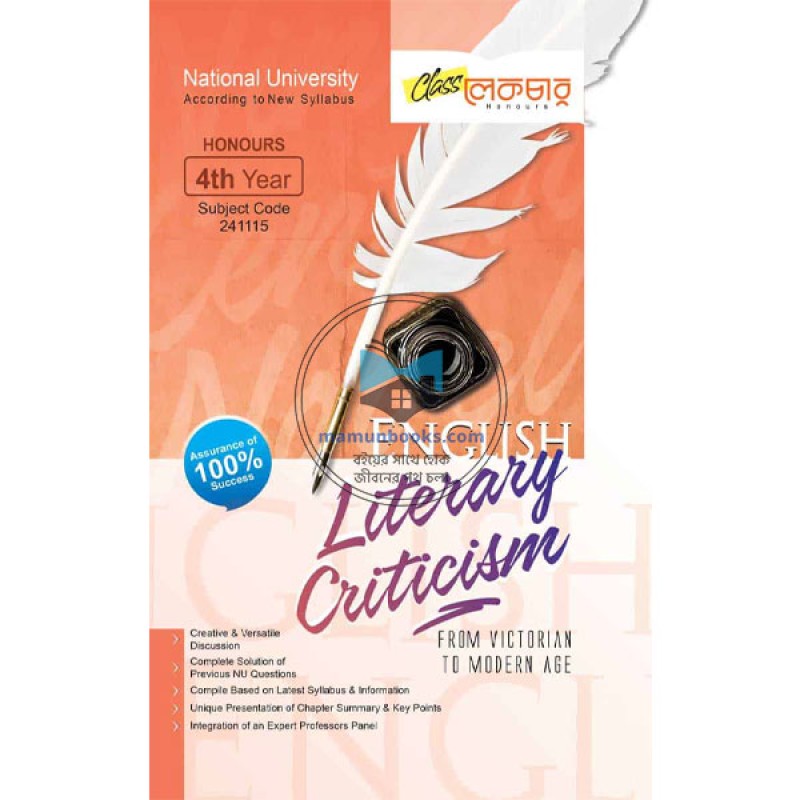প্রশান্তির খোঁজে
Tk 220.00
Tk 230.00
| Title | Lecture English Literary Criticism Honours 4th Year (Paperback) |
| Author | লেকচার পাবলিকেশন্স সম্পাদনা পরিষদ, Lecture Publication sompadona porishod |
| Publisher | লেকচার পাবলিকেশন্স লিমিটেড |
| ISBN | |
| Edition | August 2024 |
| Number of Pages | 228 |
| Country | Bangladesh |
| Language | English, |
৳ 0

0 Review(s) for Lecture English Literary Criticism Honours 4th Year (Paperback)